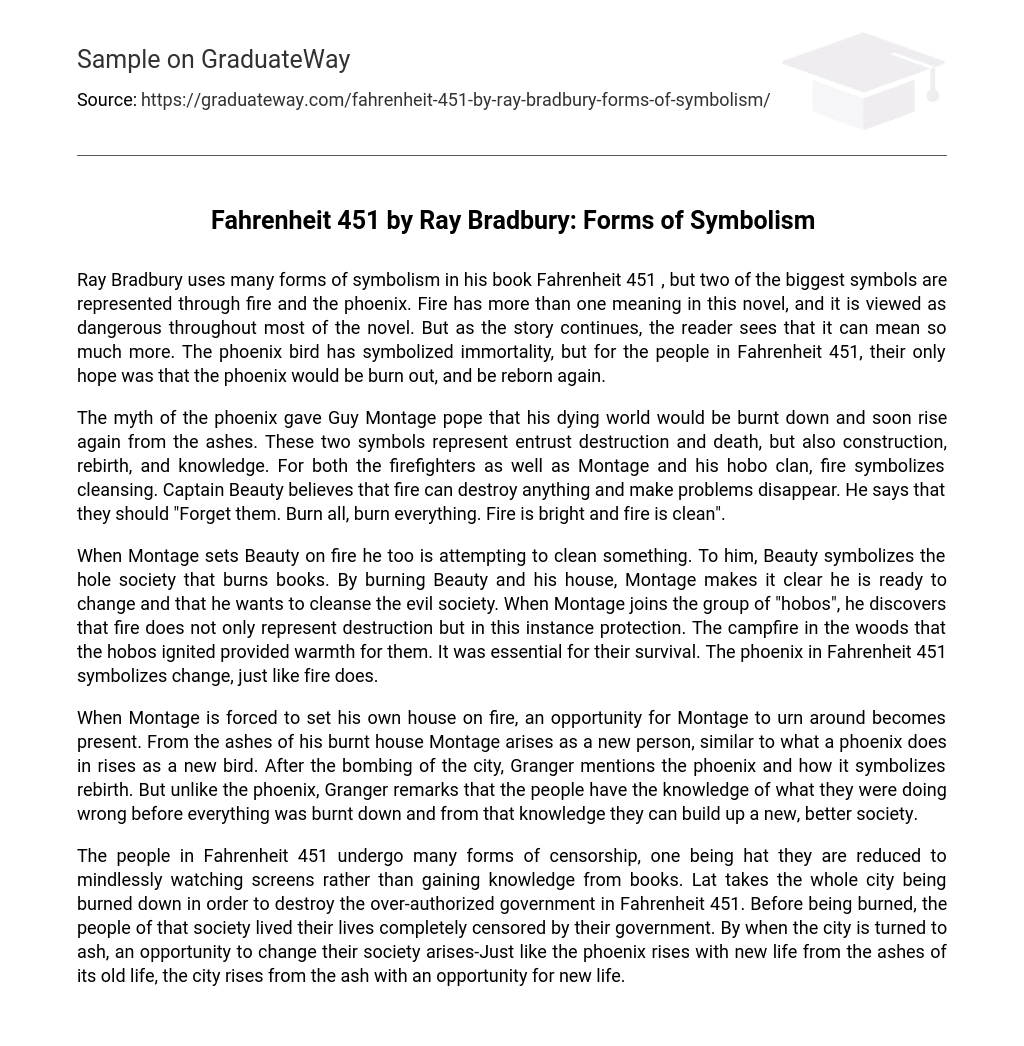In his book Fahrenheit 451, Ray Bradbury employs various forms of symbolism, with fire and the phoenix emerging as two significant symbols. Within the novel, fire carries multiple meanings and is largely perceived as perilous. However, as the narrative progresses, its significance deepens. The phoenix bird traditionally represents immortality; nevertheless, in Fahrenheit 451, people yearned for the phoenix to be consumed by fire, allowing it to be reborn anew.
The phoenix myth conveyed to Guy Montage the belief that his dying world would be burned down only to rise again from the ashes. Both the phoenix and fire symbolize destruction and death, but also represent construction, rebirth, and knowledge. For firefighters, as well as Montage and his clan of wanderers, fire is seen as a means of purification. Captain Beauty holds the belief that fire has the power to destroy anything and make troubles vanish. He advocates for burning everything, stating that fire is bright and clean.
When Montage sets Beauty on fire, he is also attempting to cleanse something. To him, Beauty represents the society that burns books. By burning Beauty and his house, Montage conveys his readiness for change and his desire to purify the corrupt society. When Montage joins the group of “hobos,” he realizes that fire serves not only as a destructive force but also as a means of protection. The campfire that the hobos ignited in the woods provided warmth and was crucial for their survival. In Fahrenheit 451, the phoenix symbolizes change as fire does.
When Montage is compelled to burn down his own house, he is provided with a chance to turn things around. Just like a phoenix emerges as a new bird from its burnt remains, Montage rises anew from the ashes of his consumed dwelling. Following the city’s bombing, Granger alludes to the phoenix as a representation of rebirth. However, unlike the phoenix, Granger notes that the people possess awareness of their past mistakes prior to everything being destroyed, and it is from this knowledge that they can construct a newfound and improved society.
The people in Fahrenheit 451 experience various forms of censorship, with one being their dependence on screens for information rather than books. It takes the complete destruction of the city to dismantle the overly controlling government in Fahrenheit 451. Prior to its destruction, the people in that society lived under strict governmental censorship. However, when the city is reduced to ashes, it presents an opportunity for societal transformation – similar to how a phoenix emerges with a renewed existence from the remnants of its previous life.





